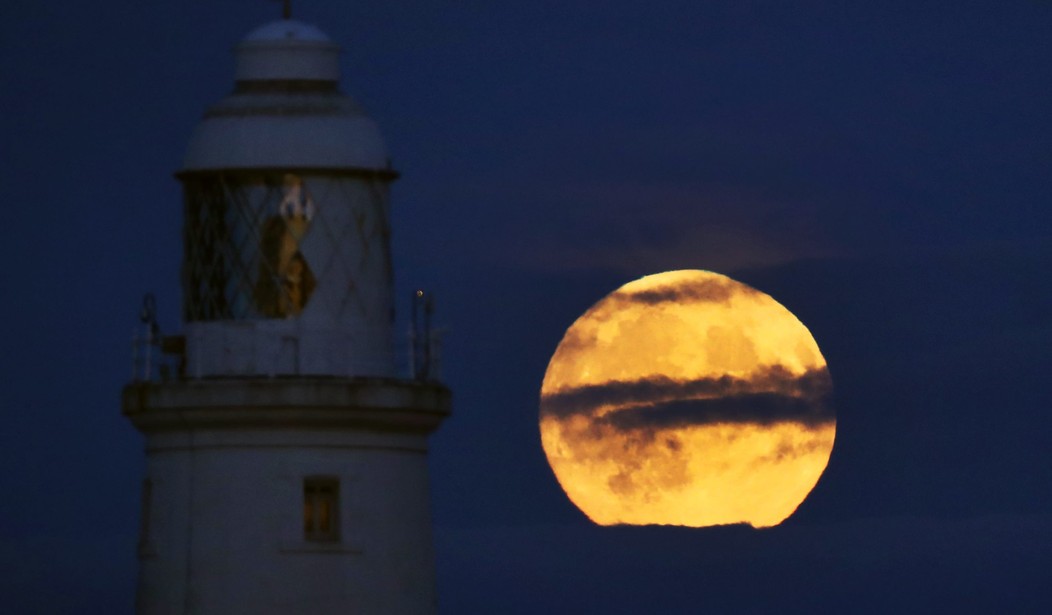WASHINGTON – If private trips to the Moon prove successful in 2018, it will mean increased urgency for laws concerning access and ownership of trillions of pounds of water-ice found on the Earth’s satellite.
India’s Chandrayaan-1 spacecraft in the late 2000s revealed the extent of water-ice on the Moon, which was later confirmed by NASA. The spacecraft documented more than 40 craters near the north pole of the Moon estimated to hold some 1 trillion pounds of water-ice. The Moon’s surface area is about 14.6 million square miles, meaning there could be significantly more water-ice, which when melted can be used as drinking water and to extract hydrogen for rocket fuel.
George Sowers, a Colorado School of Mines professor, told House lawmakers last week that water resources could mean disputes and illegal activity.
“If there’s wealth in space, eventually there’s going to be pirates in space, so you kind of have to have a way of ensuring the security of the enterprises that take place out there,” Sowers said during a hearing before the House Committee on Science, Space, and Technology’s Subcommittee on Space.
“We won’t have another Texas oil boom out there, but it will be water this time,” Chairman Brian Babin (R-Texas) said.
Sowers suggested that groups who discover and develop the water should be able to own it.
“That’s a ‘should,’” he added. “I think we need to make sure that we can establish a framework of regulatory or legal framework that makes that case.”
The water’s relevance is increasing as companies vie to become the first private enterprises to land on the Moon’s surface. Teams from the U.S., India, Japan, Israel and an international group are all racing toward landing on the Moon by March 2018 and claiming $30 million in awards for the Google Lunar XPRIZE. In order to win the awards, private teams must successfully land a spacecraft on the Moon, transport it 500 meters across the surface and transmit high-definition video and images back to Earth. Outside of that competition, there are hundreds, if not thousands, of others with plans of traveling to the Moon.
Rep. Ed Perlmutter (D-Colo.) said this is not just a discussion about pirating but nations and enterprises potentially battling for mining rights. Bob Richards, founder and CEO of Moon Express, Inc., a group of Silicon Valley space entrepreneurs, said that language in the international Outer Space Treaty will help drive the conversation. He spoke against using incendiary terms like “property rights.”
“This is still evolving,” he said. “The onus is on us as private-sector individuals and companies to behavior properly and do things responsibly and think about them, because it will be a global conversation.”
“Is there title? Is somebody jumping somebody else’s claim?” Perlmutter asked in a hypothetical scenario, adding that legislators need help in beefing up international language so there aren’t disagreements.
Bretton Alexander, director of business development and strategy for Blue Origin, which is Amazon.com founder Jeff Bezos’ spaceflight venture, said that language in the U.S. Commercial Space Launch Competitiveness Act of 2015 should be integrated into the Outer Space Treaty in forming regulatory framework. The Outer Space Treaty, he said, essentially dictates that resources are available to everyone.
“So that when we go to the Moon and discover water or ice there, we’re not saying that now we own every piece of resource now on the Moon and every bit of ice-water on the Moon,” he said. “We’re saying that we are now able to utilize what we are able to extract and be able to sell property rights over that but not rights to the entirety of the Moon.”








Join the conversation as a VIP Member